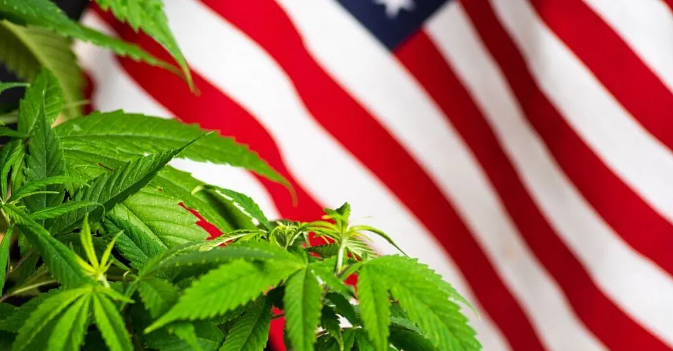
American attitudes toward marijuana continue to shift dramatically, with a recent Emerson College poll revealing that 65% of voters now believe legalizing marijuana nationwide is a good idea. Thisis a significant five-point jump from just from a year ago, signaling an accelerating trend toward cannabis acceptance across the nation.
The timing of these findings couldn’t be more relevant. As President Trump weighs a decision on rescheduling marijuana from Schedule I to Schedule III of the Controlled Substances Act, the polling data suggests Americans are ready for even bolder action than what’s currently being considered.
Breaking Down the Numbers by Generation
The generational divide on marijuana legalization tells a compelling story about America’s changing relationship with cannabis. Voters in their 40s show the strongest support at 74%, closely followed by those under 30 at 71%. This enthusiasm among younger demographics reflects a generation that has grown up witnessing the successful implementation of legal cannabis markets across multiple states.
Even more telling is the narrow split among voters over 70, traditionally the most conservative demographic on drug policy. While 52% still oppose legalization, 48% now support it—a remarkable shift considering this generation lived through the height of the War on Drugs era, when cannabis was portrayed as a dangerous gateway drug.
The older generation’s lived experience with decades of prohibition messaging helps explain their hesitation. They witnessed firsthand the aggressive anti-drug campaigns of the 1980s and 1990s, which painted cannabis as inherently harmful. However, the fact that nearly half now support legalization suggests that real-world evidence from legal states is gradually overcoming decades of ingrained skepticism.
The Normalization Effect on National Marijuana Legalization
These polling numbers reflect more than just changing opinions—they demonstrate the fundamental normalization of cannabis in American society. States with legal marijuana markets have provided real-world examples showing that legalization doesn’t lead to societal collapse. Instead, these states have generated tax revenue, created legitimate jobs, and eliminated many of the criminal justice costs associated with prohibition.
The steady drumbeat of positive news from legal states has gradually eroded the fear-based arguments that sustained prohibition for decades. Voters can see that Colorado, California, and other legal states haven’t descended into chaos. Instead, they’ve created regulated markets that are generating substantial tax revenue for education and public health programs.
This evidence-based shift in public opinion reflects a larger trend toward pragmatic drug policy. Americans increasingly view marijuana prohibition as ineffective and costly, both financially and socially. The resources spent enforcing marijuana laws could be better allocated to addressing more serious crimes and public health challenges.
What This Means for Policy
The 65% support figure places marijuana legalization in rare territory for American policy preferences. Few issues command such broad public support across demographic and political lines. This level of backing typically translates into significant pressure on elected officials to act.
Congressional Democrats have responded by filing legislation to federally legalize cannabis through descheduling. While the bill faces tough odds in the current political climate, polling data shows that such proposals will keep gaining momentum as public support grows. Here at Beard Bros Pharms, we’ll keep banging the table that rescheduling marijuana is not enough—descheduling is the only logical path forward.
For President Trump, the political opportunity is clear. Moving beyond rescheduling to embrace full legalization would align him with nearly two-thirds of American voters while potentially improving his approval ratings. It would also represent a significant departure from traditional Republican drug policy, potentially attracting new supporters while solidifying his reputation as a different kind of conservative leader.
Path Forward For National Marijuana Legalization
The steady increase in support for marijuana legalization—from 60% in October 2024 to 65% just one year later—suggests this trend will continue. As more and more states implement legal cannabis programs and demonstrate their safety and effectiveness, national support will likely grow even stronger.
The current moment presents a unique opportunity for meaningful reform. With public support, successful state models to reference, and potential bipartisan political benefits, the conditions for federal marijuana legalization have never been more favorable.
The question is no longer whether Americans want marijuana legalization—the polling data makes that clear. The question is whether federal policymakers will listen to their constituents and act on this overwhelming public mandate for change.
As the Trump administration considers its next steps on marijuana policy, these numbers provide a clear roadmap. Americans are ready for the end of federal cannabis prohibition. The only question is whether their leaders will have the courage to follow their lead.
Follow and Like:
Instagram: @ruderequipment
LinkedIn: Ruder Equipment
